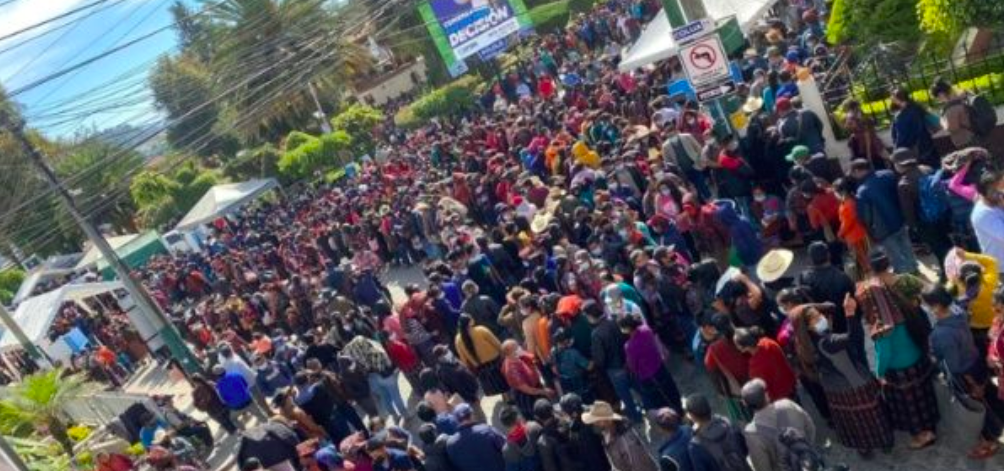By Fernando Esteche *
After close first round elections, the second electoral round (the runoff) was held between Sandra Torres, from the National Unity of Hope (UNE) and Bernardo Arévalo de León, from the Semilla Movement. The Electoral Court established the victory of the Semilla Movement formula (Arévalo-Herrera) with a large 60.9% of the votes, which is why from January 2024 Bernardo Arévalo, son of a legendary nationalist president attacked by imperialism, should be the president of Guatemala.
Considered by the political system as an outsider, Arévalo represents a political current that has always been latent in Guatemala. Far from an anti-imperialist or leftist narrative, his speech had to do with the confrontation with corruption and impunity, which earned him a clear confrontation with the political and institutional system that has been ossified in Guatemala for decades.
The Guatemalan institutions themselves, such as the Judiciary and the Public Ministry, controlled by de facto powers that have historically directed the most populous country in Central America at will, have actively operated, first trying to neutralize his candidacy and now seeking to abort his assumption of the first magistracy.
The popular sectors supported the candidacy not only with their vote but also defended their will with repertoires of street fighting, road blockades and public rallies, after a series of raids by the prosecutor’s office on the electoral court and judicial actions for the suspension of the Semilla Movement.
The elected president, Bernardo Arévalo, denounced that the measures ordered by Attorney General Consuelo Porras, Prosecutor Rafael Curruchiche and Judge Fredy Orellana, are a “coup d’état in progress” due to the elites’ fear of his promise to combat corruption.
The conflict is presented as the desperate reaction of the elites to maintain the status quo by reversing the popular sovereign decision. But it faces increasingly massive mobilizations and road blockades and a political and social articulation that exceeds the electoral proposal itself in what ends up being a confrontation between the elite and the people. It is precisely the indigenous peoples who are the protagonists and have the centrality of the popular struggle that has managed to paralyze the country. When we say that the struggles now exceed Arévalo’s electoral proposal, it is precisely what the leaders of the indigenous peoples maintain, who argue that their fight is for the defense of the popular will, not for one candidate or another.
Obviously the reaction of the elites is fierce with a great national and international media offensive that criminalizes the popular struggle by presenting it as vandalism.
The coup maneuver is so evident and so much discredit that it has even been rejected by strong actors in international diplomacy. The recent visit of Brian Nichols of the US State Department, Undersecretary of State for Western Hemisphere Affairs, highlighted the isolation of the Guatemalan elite that is trying to perpetuate itself. The diplomat met with President-elect Arévalo in a clear show of support, and with President Giammattei’s foreign minister, who did not receive the diplomat. Likewise, the director general for the Americas of the European Union, Brian Glynn, expressed his concern about the situation.
The development of events would indicate a favorable turn in the correlation of forces towards popular resistance and their just demands.
For the oligarchic elites, the position of Washington and Brussels has been the coup de grace of their perpetuation strategy. What they will surely seek is to maintain those niches of control of state power that are not determined by electoral swings and that decades of exercise of power have assured them. Among them, without a doubt, are key elements of the judicial power but also resources related to the armed forces, and surely economic power.
This would indicate that, although it is very likely that Bernardo Arévalo will be able to assume the government in January 2024, he will do so under conditions of great pressure by the factual powers and only with strength of popular mobilization as a counterweight. But he will also start with a debt to the diplomacy of Washington and Brussels.
The importance of indigenous peoples
Guatemala is a country with a mostly young population. A population that offers a mosaic of native peoples that constitute the vast majority of the popular sectors and that includes Mayan, Xinka and Garifunas (of African origin). These people face corruption, produces organized crime, inequality and poverty.
It is important to contemplate this since from the moment of Independence and starting from the roots inherited from the Colony, an authoritarian, exclusive and racist State model was configured in Guatemala.
The great citizen movement led by the mayors of the indigenous peoples faces the campaign to criminalize the popular struggle promoted by urban mesocratic sectors. This shows a political rebirth of indigenous sectors subjected to a true genocide during the armed conflict.
The great challenge of history is the possibility of articulating these experiences with the inauguration of a new president who is able to understand these movements and assimilate them in order to then be able to dismantle the complex scaffolding that is ossified in the Guatemalan state. Arévalo’s crossroads will be the same one that different progressive promises faced in Our America. It will rely on the free organizations of the people to support its policy of transformations, or it will lock itself in offices to manage the crisis. Only history will give that answer.
* Fernando Esteche is PhD in Social Communication (UNLP), full professor of International Relations (FPyCS – UNLP), professor of Contemporary Latin American History at the University of Plata, Buenos Aires and the director of PIA Global.

















Leave a Reply